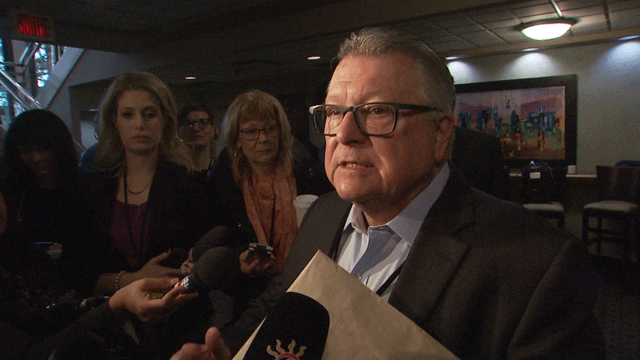
After almost a year of negotiations, Public Safety Canada says it has come to an agreement in principle with the Kativik Regional Police Force (KRPF) over new funding.
“Officials are finalizing the details to have a renewed formal agreement in place as quickly as possible,” said a spokesperson for Public Safety Canada in a statement to APTN News.
The KRPF polices the fourteen Inuit communities located in subarctic Quebec called Nunavik.
The police force and the population have a fraught relationship. The KRPF having killed and injured Inuit in the region at a rate of 55 times that of the Montreal police since July 2016.
In his December, testimony at the Quebec Inquiry into Relations between Indigenous Peoples and Certain Public Services, KRPF police chief Jean-Pierre Larose threatened to hand over policing in the region to the Quebec provincial police.
“Mr. Commissioner, I have to tell you, we’re not even at five minutes to midnight, we are at one minute to midnight,” Larose told the Quebec Inquiry.
Larose cites a lack of infrastructure and manpower as reasons the KRPF are unable to police the region properly.
According to the KRPF, last year they paid out 33,000 hours of overtime – the equivalent of sixteen full time officers.
When asked Friday about why the policing agreement was taking so long to sign, Public Safety Minister Ralph Goodale defended his department’s record.
“We are negotiating in good faith with our provincial partners and with the First Nations involved, but the money is there,” said Goodale.
Goodale says there was a $291 million increase in funding for Indigenous police forces over five years announced in January of 2018.
Some of the money will go towards hiring more officers, but is to be split over 185 Indigenous police forces in Canada.
Larose told APTN News in October that breaks down to about three officers per police force.
He said he needs 30.
“Right now, our police force, my men, is really out of breath and we are kind of on the respirator,” Larose said in October.
Larose was unable to be reached for comment regarding the agreement in principle.
The agreement in principle also involves the province of Quebec which is responsible for 48 per cent of the money.
Read more: Imported Justice: A look inside Quebec’s travelling court in Nunavik










